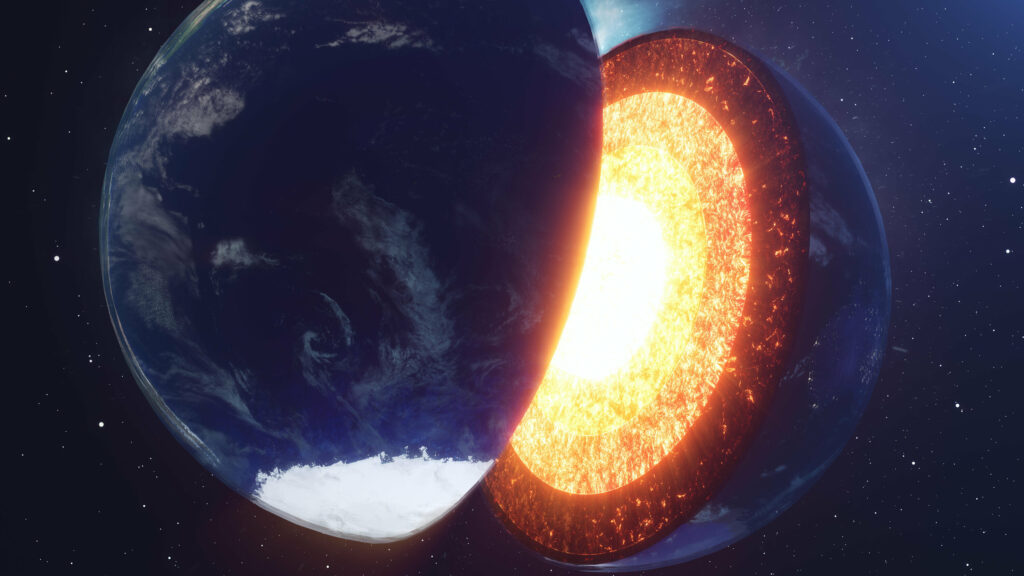While CO2 is regarded as the one and only important cause of climate change in the late 20th century, those dratted scientists keep blurting out that there are other factors that were not entirely irrelevant before Henry Ford or possibly James Watt. A new study says changes in the Earth’s orbit may have caused the famous (well, in some circles) Paleocene-Eocene Thermal Maximum (PETM) rather than, say, an extraterrestrial impact, an attack of the giant volcanoes or Fred Flintstone’s SUV. (Just kidding. Humans came way later, partly because this massive warming led not to apocalypse and mass extinction but a profusion of new species including those pesky primates.) Still, to a scientist with a hammer… so somehow what Scientific American calls “subtle shifts in Earth’s orbit around the sun” released vast amounts of CO2 and up went the temperature. And then presumably something sucked it out again because temperature plummeted in the anti-greenhouse effect. Or else climate is more complicated than just a CO2 trigger and a bullet to the planet’s head.
Climate orthodoxy is strong in this one. The PETM is not just blamed on a vast increase in CO2, it is also described as, in the words of the Smithsonian National Museum of Natural History, “the best geological analog for the human-induced global warming that is happening now.” Because it was natural and took 10,000 years and saw temperatures rise by “5-9˚C globally” then fall again just as suddenly instead of there being a runaway greenhouse effect, you understand.
A better conclusion would be that climate is complex, even transcomputably so, and hence “chaotic” in the technical sense. It certainly is complex. National Geographic just blurted out that “Earth’s inner core is doing something weird”. Which it turns out it’s not. Far be it from us to mention clickbait, but the story is actually about a study that suggests the so-called “super-rotation” of the planet’s inner solid iron core is slightly slower than most older studies surmised. So it’s not slowing down, speeding up, changing direction or anything else “weird” or indeed anything it wasn’t already doing. It’s just that we aren’t sure what it has been doing all along and still aren’t.
What it’s doing matters, because it is motion in the inner part of the planet that generates the magnetic field that shields the planet from most cosmic rays and thus protects life here. Which means that if the core really did something weird we could be in a heap of trouble. And not just the core.
Another study says the Devonian-Carboniferous mass extinction some 359 million years ago might have happened because a nearby supernova, as astronomers use the term “nearby,” flooded the planet with a lethal dose of cosmic rays, magnetic field or no magnetic field. This extinction, incidentally, was one of five known to have happened of which the famous dinosaur-erasing one was most recent, though National Geographic primly lists “Extinction today” as a sixth. Boo. Bad humans. And even if no supernova decides to spoil our loud messy party, what about a massive “solar storm” like 1859’s “Carrington event” which had consequences even in a world where the telegraph was a new-fangled novelty and might give the Internet and a host of “smart devices” a smackdown with genuinely dreadful consequences?
Meteorites, supernovas, super-rotation, solar storms; there’s a crowded stage on which some would have CO2 hog the limelight. In fact the Earth is a very dynamic object and it is highly unlikely that complex phenomena like climate have single dominant drivers. As everyone knows even if they ritually genuflect at the altar on which oil is to be sacrificed to save us from the wrath of Gaia.



God!, I love your website.....ain't nothing like the voice of science and reason!
Obviously, you must be racist, homophobe, right wing, bullies like me!
Keep up the good work
Yup , he must be all of that ... Or on the other hand,,,,,, he may just be right....